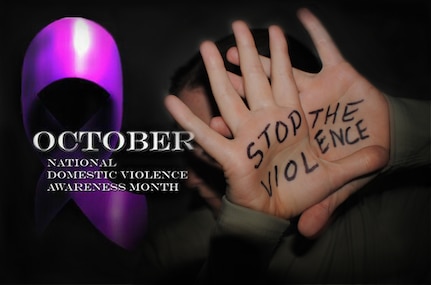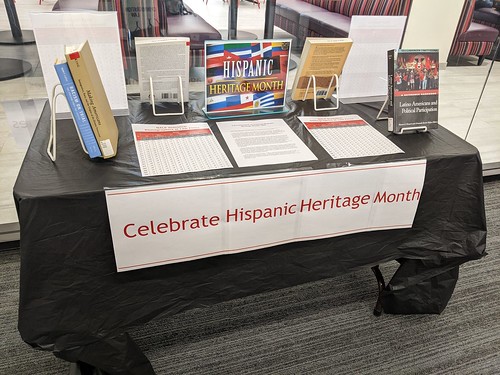This week in the Law Library it’s Fall Break! We’re still here to answer any of your cite checking or legal research questions! We’re also continuing to raise awareness for Cybersecurity Month and Domestic Violence Awareness Month and celebrating Hispanic Heritage Month. This week we’re also previewing United States Supreme Court oral arguments.
Happy Indigenous Peoples’ Day!
On October 3, 2018, Cincinnati City Council passed a resolution officially recognizing the second Monday in October as Indigenous Peoples Day. President Biden has also proclaimed October 9 as Indigenous Peoples Day.
The Greater Cincinnati Native American Coalition feels that this toolkit is the most concise education for any person interested in supporting Indigenous folx.
University of Cincinnati Land Grant Acknowledgement
The Cincinnati area and the land that the University of Cincinnati has been built on is the native homeland of the Indigenous Algonquian speaking tribes, including the Delaware, Miami, and Shawnee tribes.
University of Cincinnati Libraries Land Grant Acknowledgement
We respectfully acknowledge that we are on the traditional, ancestral lands of the Ni-u-kon-ska (Osage), Ani’-Yun’wiya (Cherokee), Myaamia (Miami), Lenape (Delaware), and Shawandasse (Shawnee) Nations. These peoples, in addition to the ancient Adena and Hopewell cultures, lived and thrived here before being subjected to forcible removal and genocide. As we reflect on the Nations whose land we appropriated, it is also critical to acknowledge that Native peoples are still here. The legacy of displacement and subjugation disproportionally affects Native communities and families as they continue to fight for the sovereignty of their Nations and the retention of their tribal lands.
Learning our land’s history is not enough. A shared commitment to learning about and supporting Native nations, organizations, and causes is also an important way to acknowledge the land on which our city was built and the Native peoples who were displaced from it. Further, we acknowledge the institutional, socioeconomic, physical, psychological and emotional wounds and inequalities that remain in existence as a result of these inhumane and reprehensible crimes.
Learn More about Indigenous Peoples and Indigenous Peoples’ Day
United Nations and Indigenous Peoples – Outreach Material from Across the UN
Mental Health Awareness Day
October 10 is Mental Health Awareness Day. You, the law student, are not alone in struggles with mental health. Seeking help is not a sign of weakness, but rather a sign of strength. .Focus, resilience, balance and overall wellness are essential to a successful and fulfilling experience as a law student and as an attorney. Our Resiliency & Wellness for Law Students & Lawyers guide will provide you with resources to help you throughout your time in law school and as you practice law.
GlobeMed at UC will be tabling for Mental health awareness day on Oct. 10th in the Langsam Library Lobby 10:30am – 12:30pm. Stop by to talk about the importance of mental health, play some fun activities to win prizes, and grab a free wellness kit!
National Domestic Violence Awareness Month
October is National Domestic Violence Awareness Month. Begun in 1981 by the National Coalition Against Domestic Violence as a Day of Unity, the month provides an opportunity for advocacy organizations to connect with the public and one another throughout the month to raise awareness about the signs of abuse and ways to stop it, and to uplift survivor stories and provide additional resources to leaders and policymakers. battered women’s advocates across the country.
#Every1KnowsSome1
More Resources for Domestic Violence Awareness
ABA, The Commission on Domestic & Sexual Violence
The ABA Commission on Domestic & Sexual Violence’s mission is to increase access to justice for victims of domestic violence, sexual assault, and stalking by mobilizing the legal profession.
ABA, The Commission on Domestic & Sexual Violence, Domestic & Sexual Violence 101 Webinar Series
- Part I: Understanding Sexual Assault and Victimization: Building the Foundation for Civil Legal Advocacy
- The course will establish the basic differences between non-intimate partner sexual assault and domestic violence, address the dynamics of victimization and perpetration, and introduce why the civil legal system is needed to meet the most urgent needs of sexual assault survivors.
- Part II: Issue Spotting Sexual Assault Survivors’ Needs: Conducting a Holistic Intake
- This online course explores the impact trauma can have on a sexual assault legal intake and invites participants to develop strategies for working effectively with sexual assault survivors to identify and address their legal needs.
- Part III: Intersections of Sexual Assault and Family Law
- This training will explore the intersections of sexual assault and family law matters, including working with minor clients and advocating on behalf of non-offending parents.
Ohio Domestic Violence Network, See the Signs & Speak Out
See the Signs & Speak Out is an innovative workplace training program from the Ohio Domestic Violence Network that helps employers and employees learn to talk about domestic and sexual violence issues in the workplace.
National Cybersecurity Awareness Month

October is also National Cybersecurity Awareness Month. Cybersecurity Awareness Month was launched by the National Cyber Security Alliance & the U.S. Department of Homeland Security in October 2004.
This year’s campaign theme — “Secure Our World” — is here to remind us that there are simple ways to protect yourself, your family and your business from online threats.
Cybersecurity Awareness Month 2023 and Secure Our World will focus on four key behaviors:
- Use strong passwords and a password manager
- Turn on multifactor authentication
- Recognize and report phishing
- Update software
UC Cybersecurity Awareness Month Trivia Challenge Week 2
Flex your cybersecurity knowledge in our trivia event. Open to all at UC, our Cybersecurity Awareness Month Trivia Challenge offers weekly winners and a grand prize.
UC Cybersecurity Awareness Month Meme Competition
Show off your meme-making skills and win prizes! The contest runs now October 31, 2023.
CISA Cybersecurity Awareness Month 2023 Webinar: Multifactor Authentication
You need more than just a password to protect our online accounts; enabling multifactor authentication (MFA) makes us significantly less likely to get hacked.
Microsoft, Securing You: Basics and Beyond
Security-related advice can be hard to understand and follow. Many people have asked for a simple description of how to secure their computers and online accounts without needing in-depth training or hours of study. This module will give you simple advice you can follow, tools you can use, and pitfalls to avoid, to ensure that you can remain secure online.
Celebrate National Hispanic Heritage Month
Photo by Texas Military Department, CC BY-ND 2.0
Hispanic Heritage Month is September 15 to October 15 and celebrates the contributions and importance of Hispanics and Latinos to the United States and those American citizens whose ancestors came from Spain, Mexico, the Caribbean, Central America, and South America. This year’s theme is Uniting Communities.
UC Law Library Hispanic Heritage Month Display
Take a few moments out of your busy schedules to view our Hispanic Heritage Month small display.
UC & UC Law Celebrations & Events
UC Alumni Association Celebrates Hispanic Heritage Month
UC Libraries Hispanic Heritage Month Display
A new exhibit on display on the 4th floor lobby of the Walter C. Langsam Library presents information about this month and features books from the collections of UC Libraries.
UCBA Library, Hispanic Heritage Month Display
Browse the online guide of suggested reads!
UC Latinx en Acción, Cafecito Conversaciones
Thursday, Oct. 12, 2023
6:00pm
Ethnic Programs and Services, Steger 539
UC Latinx en Acción, Hispanic Volunteer Day
Saturday, Oct. 14, 2023
8:00am
Roberts Academy
1702 Grand Ave, Cincinnati, OH 45214
Volunteer Sign-up
5 Resources to Learn More about Hispanic Heritage
Chicano Database
Bibliographic materials on Mexican-American topics 1967 to the present. Scope expanded 1992 to include the broader Latino experience¸ including Puerto Ricans¸ Cuban Americans¸ and Central American immigrants. Includes the Spanish Speaking Mental Health Database.
Ethnic Newswatch
Full text articles from newspapers and periodicals published by the ethnic and minority press in America¸ some dating back to 1985.
Coverage: Full Text; 1985 – present
Hispanic / Latino Demographics
Statistics and demographic information from the Pew Research Center.
HAPI Online (Hispanic American Periodicals Online)
HAPI Online combines current information about Latin America with complete coverage spanning more than 25 years¸ from 1970 to the present. The database contains over 200¸000 citations from 400 humanities and social science journals published worldwide. Most of the journals covered by HAPI are not comprehensively indexed elsewhere¸ although many articles from these journals are selectively included in HLAS.
LatCrit
The LatCrit community operates as a not-for-profit corporation. LatCrit goals are: (1) to develop a critical, activist and inter-disciplinary discourse on law and policy towards Latinas/os, and (2) to foster both the development of coalitional theory and practice as well as the accessibility of this knowledge to agents of social and legal transformation. LatCrit theorists aim to center Latinas/os” multiple internal diversities and to situate Latinas/os in larger inter-group frameworks, both domestically and globally, to promote social justice awareness and activism.
October Arguments at the United States Supreme Court
From SCOTUS Blog:
Tuesday, October 10, 2023
Murray v. UBS Sec., LLC – whether, following the burden-shifting framework that governs cases under the Sarbanes-Oxley Act of 2002, a whistleblower must prove his employer acted with a “retaliatory intent” as part of his case in chief, or whether the lack of “retaliatory intent” is part of the affirmative defense on which the employer bears the burden of proof.
Great Lakes Ins. SE v. Raiders Retreat Realty Co., LLC, – whether, under federal admiralty law, a choice-of-law clause in a maritime contract can be rendered unenforceable if enforcement is contrary to the “strong public policy” of the state whose law is displaced.
Wednesday, October 11, 2023
Alexander v. S.C. State Conf. NAACP – (1) whether the district court erred when it failed to apply the presumption of good faith and to holistically analyze South Carolina Congressional District 1 and the South Carolina General Assembly’s intent; (2) whether the district court erred in failing to enforce the alternative-map requirement in this circumstantial case; (3) whether the district court erred when it failed to disentangle race from politics; (4) whether the district court erred in finding racial predominance when it never analyzed District 1’s compliance with traditional districting principles; (5) whether the district court clearly erred in finding that the General Assembly used a racial target as a proxy for politics when the record showed only that the General Assembly was aware of race, that race and politics are highly correlated, and that the General Assembly drew districts based on election data; and (6) whether the district court erred in upholding the intentional-discrimination claim when it never even considered whether—let alone found that—District 1 has a discriminatory effect.





